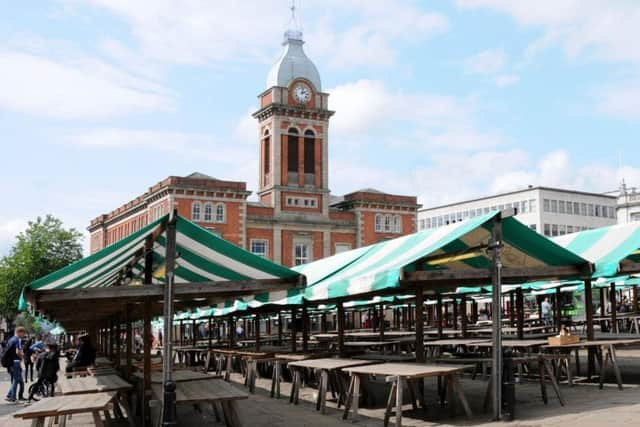Take a lesson from the French in real market value of homes – David Behrens


In Wetherby, for instance, the average price of a house is double that in the surrounding area – some £186,000 more, according to a survey this week by Lloyds. That is said to put it in the same bracket as the stockbroker suburbs of south Buckinghamshire.
Now, Wetherby is a lovely place. But as with most such destinations, it is made so by its location, the quality of its housing stock and the pride that those who live there take in it. The arrival of a fleet of Transit vans on a Thursday morning does not constitute the “lifestyle choice” the survey suggests.
Advertisement
Hide AdAdvertisement
Hide AdOtley, which is closer to where I live, has a similar market. Many of the traders who pitch up there each Friday and Saturday have been in Wetherby, or perhaps Skipton, a day or two before, with the same assorted cargoes of fresh produce, shoes and socks or mobile phone accessories. The stalls add colour to the main street but their presence doesn’t seem to affect the house prices, which are significantly lower than down the road in Ilkley, where there is no weekly market.


And although marketplaces are an added incentive to visit high streets that might otherwise be dying on their feet, the reality of shopping in one seldom lives up to the expectation.
I was reminded on my last visit to Wetherby, a fortnight ago, just how wonderful the best outdoor stalls can be. I wasn’t in the market but at the racecourse on the edge of town, which had been given over to an exhibition on buying property in France.
Several friends over the years have invested in homes across the Channel, some to spend their summers, others to rent out; a few to retire. I had not given much thought to the possibility of one day joining them, but this made me reconsider.
Advertisement
Hide AdAdvertisement
Hide AdYou don’t have to pay a premium over there to be close to a market because there is one in almost every town and large village, and the French really know how to put on a show. An abundance of beautifully presented fresh meat, cheese and pastries overflows from every stall, and the event takes on the atmosphere of a village fete. Even indoors, in the humblest supermarché, vegetables are presented as if they have been pulled fresh from the ground, not shrink-wrapped in plastic.
Yet it is not the markets that attract British buyers to France; it’s the house prices. Imagine flicking through the property section of The Yorkshire Post this morning and removing the last nought from each of the prices, and you get the idea. Of course, this won’t work in Paris, where you need a mortgage just to buy a crêpe, but the countryside is a veritable bargain basement.
A quick search in the Limousin region, for instance, reveals an estate at the foot of the Château de Turenne, with two rambling, restored houses and a swimming pool for the equivalent of £275,000. That’s less than the average price of a modest family semi in an English market town.
It is the polar opposite of the market in much of rural Yorkshire, where families can no longer afford to live and where entire villages have become, as one senior councillor in the Dales told me recently, retirement homes for the rich. An existential crisis of too few affordable homes, not enough jobs and an outflow of younger people threatens their continued existence as functioning economic units.
Advertisement
Hide AdAdvertisement
Hide AdIt all points to the dysfunctional state of the housing market in Britain – and the Lloyds survey, which serves only to inflate the values of market town properties even further – is yet another symptom. We have become spoiled by the gratification of seeing the investment in our homes rise tenfold with every passing generation, but the net effect has been only to price out our grandchildren. The family home my parents bought when I was 10 cost them £3,400, a considerable sum at the time. Its value now is 7,400 per cent higher. Good luck to any twentysomething today getting a mortgage on it.
Set against all this, the backwater of rural France seems more attractive than ever. In all probability it will remain so – unless the British turn up in their Transits and spoil everything.